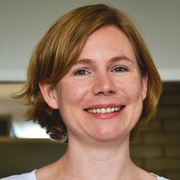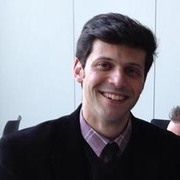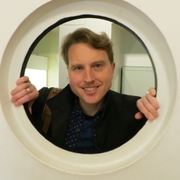- Level Foundation
- Duration 27 hours
- Course by The University of Edinburgh
-
Offered by

About
Philosophy, Science and Religion mark three of the most fundamental modes of thinking about the world and our place in it. Are these modes incompatible? Put another way: is the intellectually responsible thing to do to ‘pick sides’ and identify with one of these approaches at the exclusion of others? Or, are they complementary or mutually supportive? As is typical of questions of such magnitude, the devil is in the details. For example, it is important to work out what is really distinctive about each of these ways of inquiring about the world. In order to gain some clarity here, we’ll be investigating what some of the current leading thinkers in philosophy, science and religion are actually doing. This course, entitled ‘Religion and Science’, is the third of three related courses in our Philosophy, Science and Religion Online series. The course will address five themes, each presented by an expert in the area. 1. Science, Religion, and the Origin of the Universe (Professor Tim Maudlin, NYU ) 2. Buddhism and Science (Professor Graham Priest, CUNY) 3. Evolution and Design (Dr Kevin Scharp, St Andrews) 4. Sin Suffering and Salvation: Evolutions Thorny Issues (Dr Bethany Sollereder, Oxford) 5. Human Uniqueness in Science, Theology, and Ethics (Professor David Clough, Chester) The first and second courses in the Philosophy, Science and Religion series, 'Science and Philosophy' and 'Philosophy and Religion' were launched in 2017 and you can sign up to these at any time. It is not necessary to have completed these courses to follow this course. However, completing all three courses will give you a broader understanding of this fascinating topic. Look for: • Philosophy, Science and Religion I: Science and Philosophy - https://www.coursera.org/learn/philosophy-science-religion-1 • Philosophy, Science and Religion II: Philosophy and Religion - https://www.coursera.org/learn/philosophy-science-religion-2 Upon successful completion of all three courses, students will: (1) Understand the main parameters at stake in the current debate between science and religion. (2) Have some familiarity with the relevant areas of science that feature in the debate—including cosmology, evolution, and the neurosciences—and will have begun to engage with them conceptually. (3) Have encountered key philosophical approaches to the interface between science and religion, and will have had the opportunity to engage them in practice. (4) Have embarked constructively in cross-disciplinary conversations. (5) Have demonstrated an openness to personal growth through a commitment to dialogue across intellectual and spiritual boundaries. You can also follow us on Twitter at https://twitter.com/EdiPhilOnline and you can follow the hashtag #psrmoocModules
Introduction to the Course
1
Discussions
- Get to Know Your Classmates
1
Videos
- Introduction with Mark Harris
3
Readings
- About this course
- Course assessments and exercises
- Course Textbook
Lesson 1
3
Assignment
- Quiz on lecture 1
- Quiz on lecture 2
- Quiz on lecture 3
1
Discussions
- Other origin myths?
3
Videos
- The Origins of the Cosmos: Religious Accounts
- The Origins of the Cosmos: Philosophical Accounts
- The Origins of the Cosmos: Scientific Accounts
Lesson 2
2
Assignment
- Quiz on lecture 4
- Quiz on lecture 5
1
Discussions
- Does current science support the idea that our universe was designed?
3
Videos
- The Structure of the Universe
- The End of the Universe
- Structure and Design
Reading
1
Readings
- What provides a better explanation for the origin of the universe: science or religion?
Optional Essay Question
1
Peer Review
- Which, if any, of the mythological accounts of the structure of the universe does current science support? Explain your answer.
Lesson 1
2
Discussions
- Can an atheist view be a religion?
- What is the difference between religion and philosophy?
1
Videos
- The History and Geography of Buddhism
Lesson 2
2
Discussions
- Is suffering necessarily a bad thing?
- Why should a Buddhist be concerned with the suffering of others?
1
Videos
- Some Basic Buddhist Ideas: The Four Noble Truths
Lesson 3
2
Discussions
- When is it rational to believe something you have been told (by a person or a book)?
- Are there any experts in morality. If not, why not? If so, why are they experts?
1
Videos
- Buddhist Atheism and Scientific Naturalism
Lesson 4
1
Peer Review
- Required Essay Question
1
Discussions
- Do you have a self, in the sense that Buddhists deny?
1
Videos
- Buddhist Anātman and the Scientific View of a Person
Lesson 5
2
Discussions
- What makes a view scientific?
- Are there claims which are neither true nor false, or both true and false?
1
Videos
- Some Aspects of Western Logic
1
Readings
- Contradiction
Lesson 6
2
Discussions
- How can one adjudicate a dispute about logic?
- Could it be rational to believe a contradiction to be true?
1
Videos
- The Buddhist Catuṣkoṭi
1
Readings
- Catuskoti
Lesson 7
2
Discussions
- Is anything what it is in and of itself (without relation to anything else)? If so, what? If not, why not?
- How can a cat be in a state indeterminate between life and death?
1
Videos
- Emptiness (Śūnyatā)
1
Readings
- Nāgārjuna
Lesson 8
1
Discussions
- Why might one think that everything is what it is by relating to all other things? Is that a good reason?
1
Videos
- Quantum Mechanics and Entanglement
1
Readings
- Quantum Entanglement
Further reading
1
Readings
- To learn more about this topic!
Optional Essay Question
1
Peer Review
- Is the analogy between the interdependence of Huayan Buddhism and the universal entanglement of quantum mechanics a good one?
Extra material: Interview with Graham Priest
1
Videos
- Graham Priest Interview
Lesson 1
3
Assignment
- Quiz on lecture 1
- Quiz on lecture 2
- Quiz on lecture 3
1
Discussions
- Other examples of irreducible complexity
3
Videos
- Introduction
- Argument for Intelligent Design
- Arguments Against Intelligent Design
Lesson 2
2
Assignment
- Quiz on lecture 4
- Quiz on lecture 5
1
Discussions
- Humans in the image of God
3
Videos
- Scientific Theories
- Religious Doctrines
- Compatibility Between Religious Doctrine and Scientific Theory
Lesson 3
2
Assignment
- Quiz on lecture 7
- Quiz on lecture 8
1
Discussions
- Is the universe fine-tuned for life like us to develop?
2
Videos
- Bigger Issues: Compatibility Between Teleology and Scientific Theory
- Criticisms of the Fine Tuning Argument
Reading
1
Readings
- Darwin and Design
Optional Essay Question
1
Peer Review
- Is Intelligent Design compatible with Evolutionary Theory?
Lesson 1
5
Assignment
- Quiz on lecture 2
- Quiz on lecture 3
- Quiz on lecture 4
- Quiz on lecture 5
- Quiz on lecture 6
3
Discussions
- When Dr. Sollereder asked you to think of an experience of nature, was it positive or negative?
- A heaven for animals
- Does accepting evolution necessarily rule out the possibility of divine action?
6
Videos
- Introduction
- The Traditional Account and the Cosmological Fall
- The Only Way – A Package Deal
- The Second Challenge
- Original Sin & Being Made in the Image of God
- Is there Any Place for God
Reading
2
Readings
- Evolution, Suffering, and the Creative Love of God
- The purpose of dinosaurs: Extinction and the goodness of God
Lesson 1
1
Assignment
- Quiz on lesson 1
2
Discussions
- Do you think that human beings are unique? If so, why? If not, why not?
- Not so unique human capacities
3
Videos
- Are we alone in the Universe?
- Where did we come from?
- Are we just animals?
2
Readings
- The Great Debate: Learning more
- Videos of animal capacities
Lesson 2
1
Assignment
- Quiz on lesson 2
3
Videos
- Is this a theological problem?
- Does this Have ethical implications
- Conclusion
Readings
3
Readings
- All God's creatures: Reading Genesis on human and nonhuman animals
- Not a Not-Animal: The Vocation to Be a Human Animal Creature
- Consuming Animal Creatures: The Christian Ethics of Eating Animals
Required Essay Question
1
Peer Review
- Do Christians have good reason to be vegetarian?
External videos
2
Readings
- David Clough - Mirroring Narcissus: The Pursuit of Human Uniqueness as Species - Level Narcissism
- Animals and the Kingdom of God
Finishing the course
2
Readings
- Congratulations on finishing the course!
- Post-Course Survey
Auto Summary
Explore the interplay between Philosophy, Science, and Religion in this engaging course, focusing on their compatibility and distinctive approaches. Taught by leading experts like Professors Tim Maudlin and Graham Priest, it covers themes such as the origin of the universe and human uniqueness. Suitable for all learners, it spans 1620 minutes and offers foundational insights. Available through Coursera with subscription options, this course is perfect for those interested in deepening their understanding of these fundamental domains.

Dr Mog Stapleton

Dr J Adam Carter

Dr Orestis Palermos

Professor Mark Harris

Professor Duncan Pritchard


